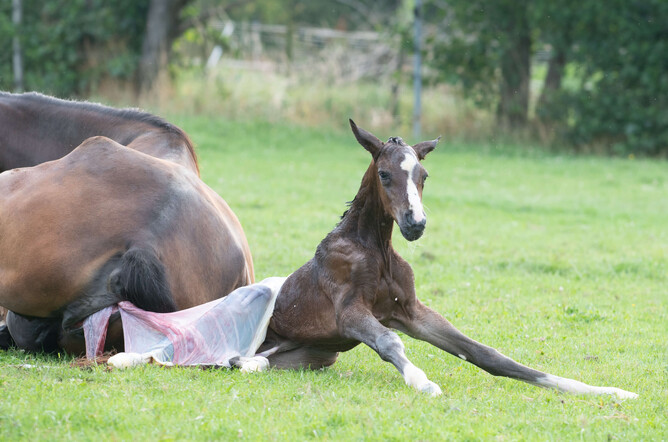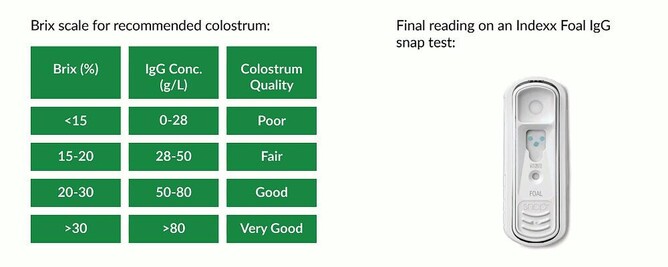It’s that time of the year again and we are faced with the sleepless nights, waiting on those all too important mares to foal. But what is ONE of the most important things to check within the first 24 hours of a foal's life? My answer to you is IgG.
You may ask yourself - what is IgG and why are you telling me it's so important? IgG is a part of the blood and stands for Immunoglobulin G, which relates to antibodies.
These antibodies are found in a mare’s colostrum, or ‘first milk’, and are only able to be absorbed through the lining of the gastrointestinal tract in the foal within the first 24 hours. The intestines then close off to these large antibodies and absorb solely nutrients from then on.
It is important as foals are born with very little to no natural immunity. The antibodies they get from the mare are all the protection they have until they start to produce their own from 3-4 months of age.
If foals do not have enough antibodies or good quality colostrum from the mare, this is called ‘failure of passive transfer’. When faced with challenges, such as viruses, bacteria and parasites, their health can decline rapidly and they may suffer from some very detrimental effects.
Symptoms can start as slowly as a foal being ‘quiet’, sleeping a lot, or ‘just not being themselves’. Other common signs are lameness and one or more swollen joints.
To find out if a foal has had enough antibodies from the mare during the first 8-12 hours, we test for IgG. We only have a 12-14 hour window to get more colostrum into that foal via the gastrointestinal tract and potentially reduce the risk of them becoming quite sick and needing veterinary intervention and treatment.
This treatment comes in the form of intravenous plasma from other horses and is considerably harder on the foal and owners' pockets.
As owners/stud managers, here are some things you can do:
Test the mare’s colostrum immediately after the foal is born on a device called a ‘colostrometer’, or a Brix Refractometer (you can buy these from your local vet and they are reasonably inexpensive).
≥ 20% is good quality colostrum and has good quality antibodies.
If your mare has excess colostrum, you can also freeze some in case you need it for another foal. Above 24% on the colostometer/refractometer is recommended.
Get a stable-side blood test done on the foal 8-12 hours after being born. We use the Idexx Foal Igg Snap Test.
This is also a great time to have the first vet check to ensure the foal is fit and healthy, has passed its meconium (first faeces) and that its umbilicus is washed and intact.
If you have any questions, remember we are here to help and only a phone call away!
- Sonya Nicholas


